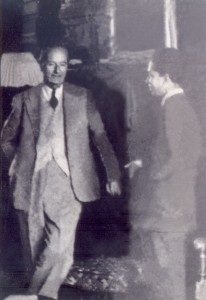Do they live up to their ideals?
Do they produce leaders for the betterment of the society?

Just now I read in the Financial Times (London) that in the forthcoming London Mayoral election one of the contestants are a millionaire’s son and the other a bus conductor’s son.
Zac Goldsmith, a millionaire environmental campaigner has been named as the ruling Conservative party candidate. He is introduced as the one “educated at Eton, the prestigious private school” and he is pitted against a lawyer, a son of a Pakistani bus driver, as Labour party’s candidate.
This is typical of the British way of saying things that are polite and the same time with a tongue in cheek. The present Mayor, Boris Johnson is also an Etonian, so is the British Prime Minister Mr. David Cameron. You see that Britain, even now, after its reduced international standing is basically an old country, with lots of traditions and ways of doing things. More so ,when it comes to running their institutions. After all, Britian still remains the very bastion of Parliamentary democracy with lots of attention to individual liberty etc.
The point I want to convey here is this: British education, its famed public schools still cast a glow on what is being done in other schools in other countries. In France, we have the Lycees, in Germany the Gymnasiums. I have had some long association with some of these countries and their school systems. In France, I stayed for a few months and went around the Lycees. Of course I have some intimate knowledge about the British schools, for some of my Oxford British friends came from Eton and other famed public schools.
Now, back in India, I have been keenly following what is happening in the Indian schools. Apart from Santiniketan where I was a student and after some practical experience in founding and running a secondary school for some years I find that even some of the best Indian public schools (one which is 150 year old with which we have two generations of experience) are based on sheer commercialization of school education. There is one organization called the Indian Public School Conference and I wonder what it is doing.
My point here is: can we say that our public schools produce leaders or role models for the rest of the society? Those who might have read the G.M. Trevelyan’s Social History of Britain must have read about how the British Public School System had shaped British society. There was a time when the best of the leaders of Britain, in all walks of life, were all products of the public schools and Oxford and Cambridge. But even now, as we have noticed here there is some underlying pride in the British school and education system.
In India there is a very refreshing contrast. We seem to produce only obedient sons and daughters or obedient servants of the state. There is still such a craze for government jobs, to become doctors or engineers and lately, a craze to migrate to the US shores at the first opportunity.
A country doesn’t become great by producing such workforce or migrants for foreign living.
I am of the opinion that our public schools, however we call them or however they are old or new (may be some of the new public schools are now called international schools and with new course like baccalaureate certificate etc.), unless you really believe in producing leaders of society and government, you don’t produce them. Even when I now read about Zac Goldsmith I am fascinated with his description as a rebel and a maverick. Londenors love mavericks as Mayors and the two predecessors must be an additional inspiration for Mr. Zac Goldsmith.
The point here is that Indian public school products, be they from old families or the nouveau riche, the youngsters must aspire for bigger goals in life. To live as leader and lead the people and help the deprived with justice and ethics!
As you all know, Britain is a highly class conscious society and their education only reflects this inequality. How about India? Here it is more sensitive issue and though we, Indians typically are hypocritical on such issues, here too inequality is growing and our education system too reflects this ground reality.
What is education after all? It is a way to a vocation. And bigger and better the vocation, the country and the society around stand to benefit. So, when it comes to what defines a country or a society, I would say it is the education system that prevails in that society. It is time to look around the world and shape Indian education in keeping with its traditions and future aspirations.
Let us reshape our public school system as an aspirational goal to make great leaders of tomorrow.